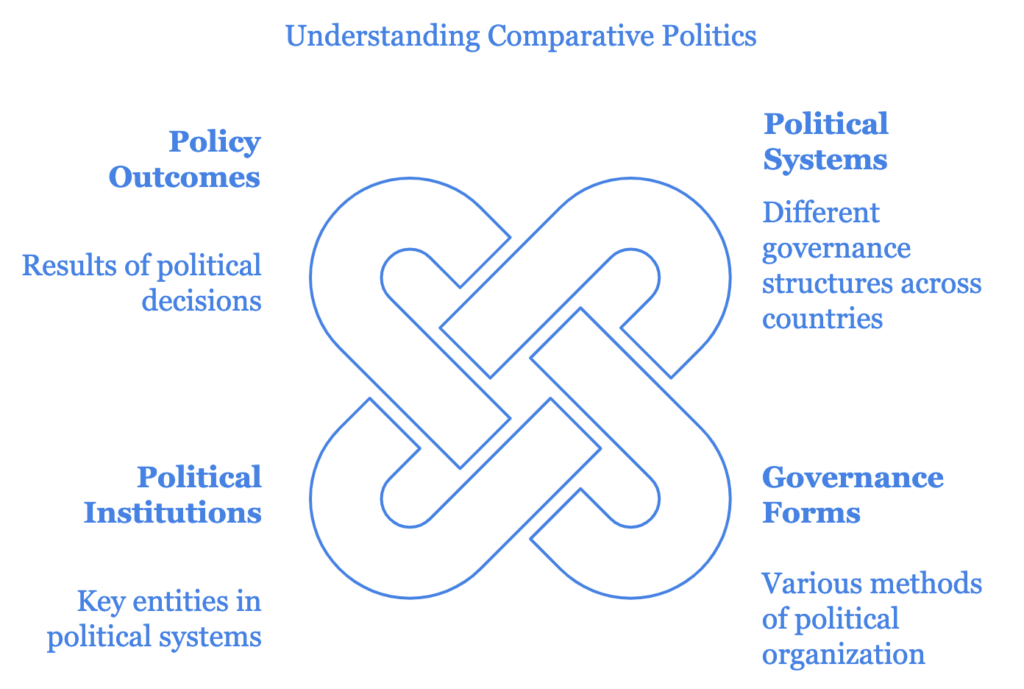My research has focused on three interconnected issues: Support for Democracy and Democratic Resilience; Trust and Distrust; Technocracy and Attitudes towards Scientific Experts. My aim is to better understand how citizens think about politics, how they make political decisions and what are the potential challenges to the stability of democratic systems. I currently lead the SNSF funded research project Varieties of Expertise (VAR-EXP, 2022-2027), which explores citizen attitudes towards experts and the uses of expertise in democratic politics.
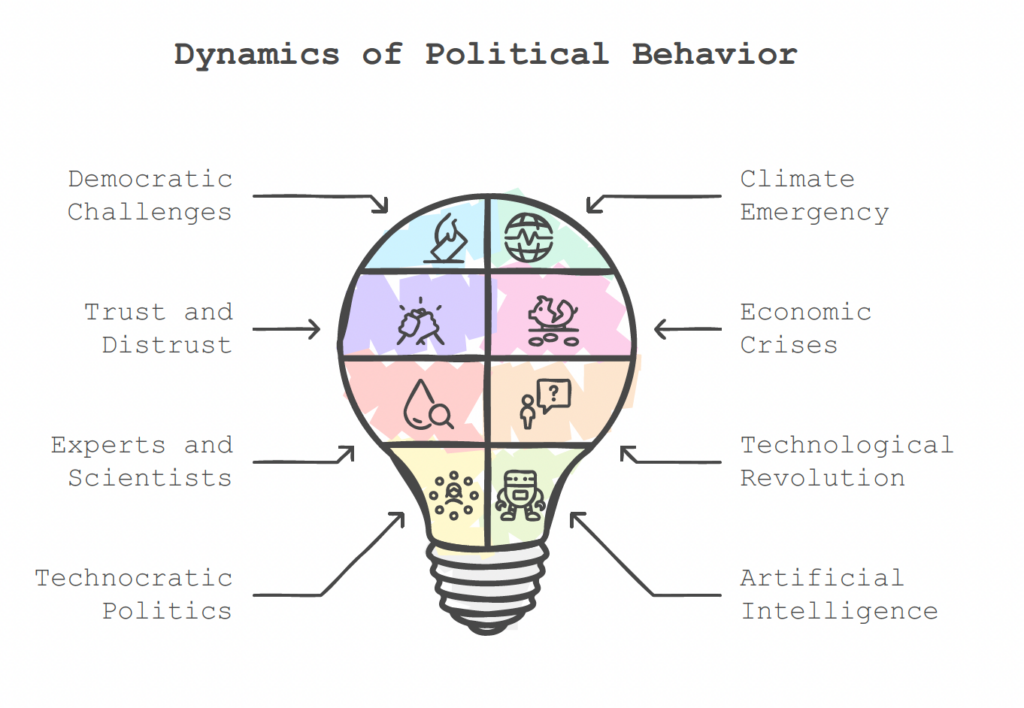
Varieties of Expertise (SNSF Eccellenza Professorial Fellowship 2022-2027)
Here you can view a recent talk on the progress of the project: “What do citizens consider to be politically legitimate uses of expertise?” Invited talk at the Institute for Future Studies, Sweden, October 4 2023.
Trust and Distrust
While the study of political trust has been at the heart of political behaviour research, very little is known about the role of distrust in politics and its consequences for democratic system stability. Given the rapid technological advancements that are changing the information and political landscape across the globe, trust and distrust are key to the way citizens navigate their life and make political choices. My work has focused on public trust in science and scientists, in particular Climate scientists, on trust and distrust of politicians, and on trust in experts.
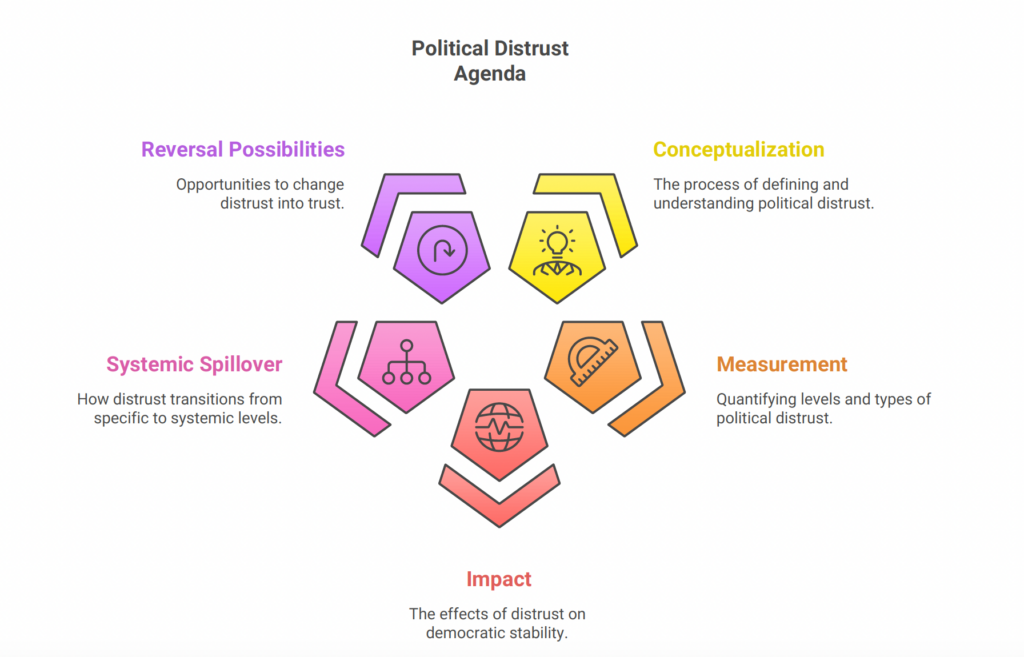
Publications and Working Papers:
- Viktoria Cologna, Jana Freundt, Niels G Mede, Lauren Howe, Eri Bertsou, Jamie Gloor, Naomi Oreskes, Reto Knutti and Mike S Schäfer “How scientists’ collective climate advocacy affects public trust in scientists and voting behavior.” Environmental Research Letters. doi:10.1088/1748-9326/ad984c
- Cologna, Viktoria et al. (forthcoming). Trust In Scientists And Their Role In Society Across 67 Countries. A ManyLabs Study. Nature Human Behaviour. Preprint available here.
- “Political Distrust and its Discontents.” (2020) Societies. https://doi.org/10.3390/soc9040072
- “Rethinking Political Distrust.” (2019) European Political Science Review. https://doi.org/10.1017/S1755773919000080
- “Distrusting Citizens: Revisiting the Concept and Measurement of Political Distrust, and its Consequences” (with Michael Bruter and Sara Harrison). Under Review. Early version available here
- “Citizen Attitudes of Political Distrust: Examining Distrust through Technical, Ethical and Interest-Based Evaluations.” PhD Thesis, available at the London School of Economics library. Download here
Events:
- “Political Trust and the Future of Democracy” Webinar with the UN Foundation nd UN Secretary General Executive Office, TrustGov.
- Presentation on “Distrusting Citizens” at the TrustGov Workshop Series.
- Invited talk “The Psychology of Political Distrust” at the Workshop for Trust in Media and Politics organized by Ulrich Saxer-Stiftung Foundation, Zurich.
- Book project: ‘It’s Distrust Stupid! Why citizens distrust politics and what it means for our democracies’. Manuscript in preparation and discussed at book workshop.
Support for Democracy and Democratic Resilience
As a behaviourist, I am interested in the role citizens can play in supporting democratic processes and resisting democratic backsliding. Recent research projects include collaborative efforts to measure citizen support for liberal democracy, which is often under attack from elected leaders with authoritarian tendencies, and to explore how far citizens on the winning side of policy conflict are willing to condone undemocratic processes. Findings show that while liberal democracy is a concept most citizens recognize, there is still ample room for improving their ability and willingness to call out violations of democratic norms.
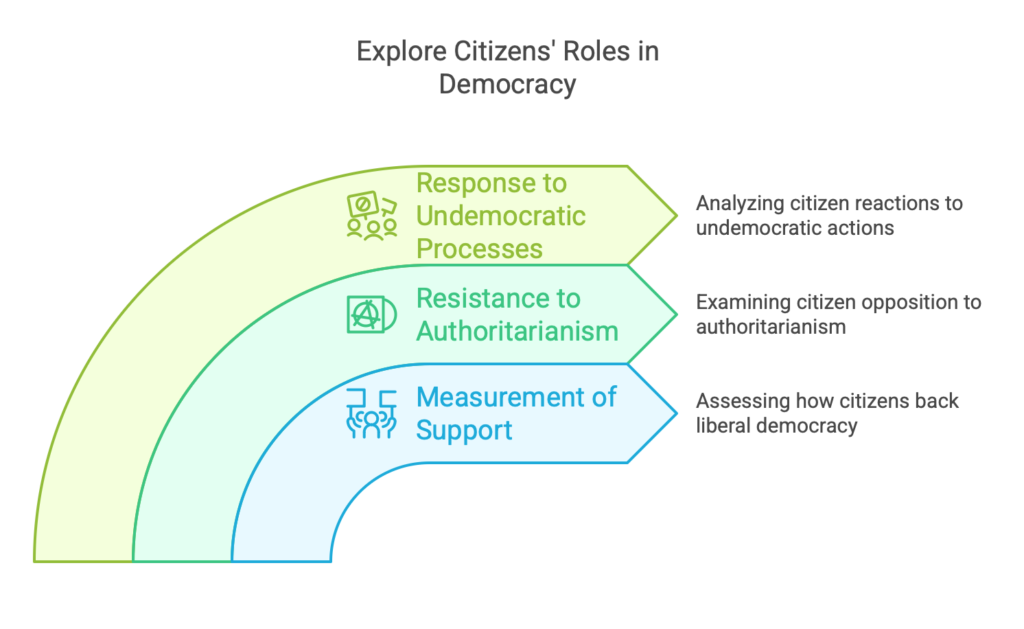
Publications and Working Papers:
- Werner, Hannah, Eri Bertsou and Sofie Marien. “Winners’ Restraint: Do winners ever reject political process that violate democratic norms?” Paper manuscript under review. SSRN preprint available here.
- Claassen, Christopher, Kathrin Ackermann, Eri Bertsou et al. (2024) “Conceptualizing and Measuring Support for Democracy: A New Approach.” Comparative Political Studies. https://doi.org/10.1177/00104140241259458.
- “Between Direct Democracy and Representation: the Case of Brexit” (with Daniele Caramani). Working paper, presented Jean Monnet Fellowship Programme @25, European University Institute, Florence.
- The 2014 EP Elections: A Victory for European Democracy? A Report on the LEQS Annual Event 2014, LEQS Paper No. 78.
Technocratic Politics and Attitudes towards Experts
Democratic governments around the world are forced to deal with an increasing need for expertise and technocrats for effective governance, while at the same time remaining committed to and representative of the citizens who voted for them. The climate crisis, the COVID19 pandemic and the Euro-crisis have brought this uneasy relationship to the forefront of democratic politics. My research focuses on citizens’ attitudes towards independent experts, the relationship between technocratic expertise and democratic representation and the conditions under which scientific and technocratic expertise can help rebuild trust in democratic decision-making.
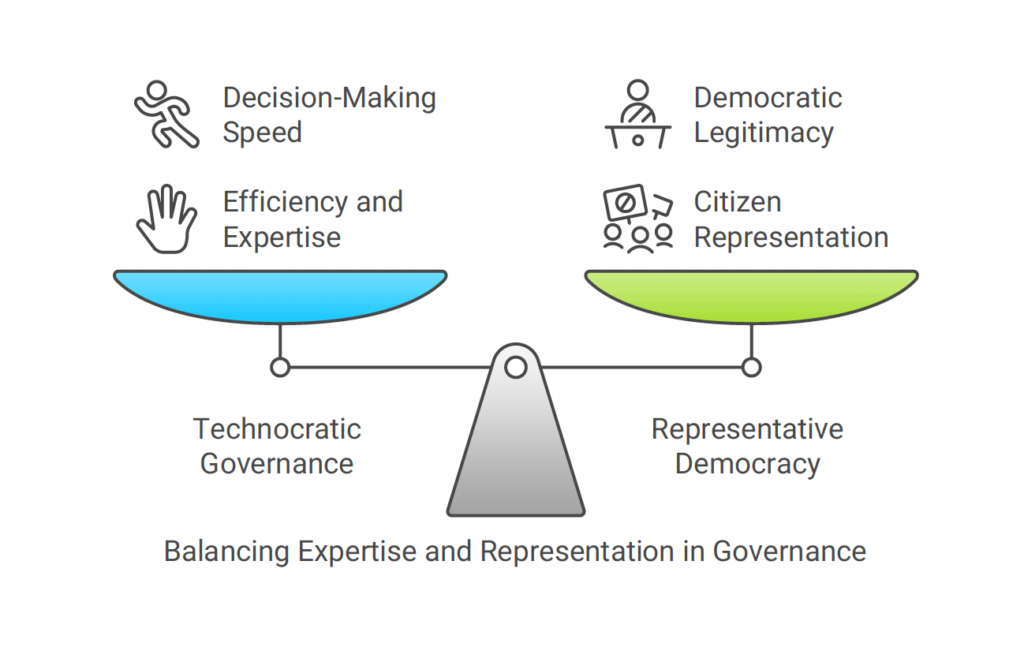
Publications:
- Viktoria Cologna, Jana Freundt, Niels G Mede, Lauren Howe, Eri Bertsou, Jamie Gloor, Naomi Oreskes, Reto Knutti and Mike S Schäfer “How scientists’ collective climate advocacy affects public trust in scientists and voting behavior.” Environmental Research Letters. doi:10.1088/1748-9326/ad984c
- Cologna, Viktoria et al. (2024). Trust In Scientists And Their Role In Society Across 67 Countries. A ManyLabs Study. Nature Human Behaviour. Preprint available here.
- Bertsou, Eri, Daniele Caramani and Jelle Koedam (2024). “The ideological profile of the technocratic citizen.” European Journal of Political Research. https://doi.org/10.1111/1475-6765.12698.
- “Bring in the Experts? Citizen Preferences for Independent Experts in Political Decision-Making Processes.” European Journal of Political Research. Early version
- “People Haven’t Had Enough of Experts: Technocratic Attitudes among Citizens in Nine European Democracies” (with Daniele Caramani). American Journal of Political Science. (Early version) https://onlinelibrary.wiley.com/doi/abs/10.1111/ajps.12554
- “Technocratic Discourse Codebook” (with Daniele Caramani). IPZ Working Papers. (Download)
- “Technocratic Attitudes: A Citizens’ Perspective of Expert Decision-Making.” (with Giulia Pastorella). West European Politics. doi:10.1080/01402382.2016.1242046
- The Technocratic Challenge to Democracy, Edited by Eri Bertsou and Daniele Caramani. Routledge. Table of Contents
- “The Electoral Implications of Technocratic Attitudes.” Working paper
- “Anything But Politics: The Overlap Between Populist and Technocratic Citizen Preferences” Working paper
- “Technocratic Attitudes in Comparative Perspective” (with Daniele Caramani). Working paper
Events:
- Invited talk on ‘Citizen Technocratic Attitudes in Comparative Perspective: Evidence from non-European Democracies’ at the Comparative Politics and Political Economy Speaker Series. University of Konstanz.
- Invited talk on ‘The Electoral Implications of Technocratic Attitudes’ at the Early Career Researchers Seminar Series, Virtual Seminar.
- Invited talk on ‘Citizen Preference for Experts in Policy-making’ at St. Gallen, Political Science Research Seminar.
- Invited talk on ‘People Haven’t Had Enough of Experts’ at Bocconi University, Dondena Seminar Series.
- Invited talk on ‘Measuring Technocratic Attitudes Among Citizens in Nine European Democracies‘ at the Centre for Political Science Research, KU Leuven, Belgium.
- Organised Panel on ‘Political Outsiders and the Challenge to Party Politics’, ECPR Annual Conference, Wrocław, Poland.
- ECPR Joint Sessions Workshop in Nicosia.
- Research Workshop organised at the University of Zurich.
